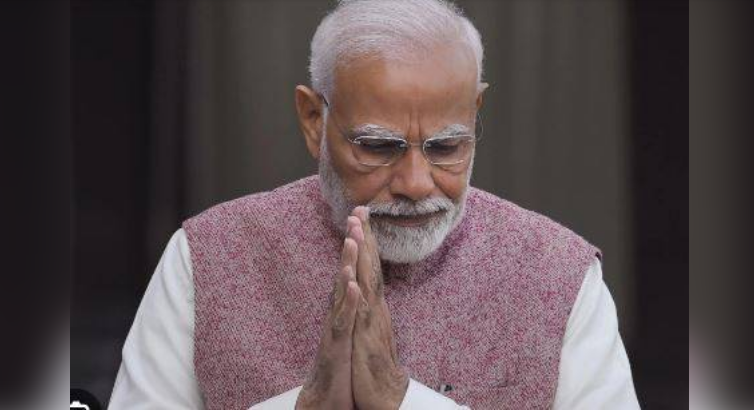Washington (Web Desk/Agencies): A recent investigative report by prominent US publication Washington Post has raised alarming claims about India's covert activities, suggesting that the country's intelligence agency, Research and Analysis Wing (RAW), has been involved in a series of targeted killings in Pakistan and beyond.
The report paints a picture of a well-coordinated assassination campaign that seems to be part of a broader strategy, attributed to Prime Minister Narendra Modi's assertive approach to foreign policy.
Under Modi's leadership, India is allegedly taking more aggressive steps to deal with perceived threats, particularly from neighboring Pakistan, in ways that bypass traditional diplomatic channels.
One of the most notable cases in this covert campaign is the killing of Amir Sarfaraz, known as
"Tamba," in Lahore in April 2023. Sarfaraz, a former prisoner tied to the 2011 killing of an Indian intelligence officer, was shot by gunmen on a motorcycle, and Pakistan has accused India of being behind the hit.
This incident is said to be part of a growing series of killings, which Pakistani officials argue began ramping up in 2021, coinciding with Modi's second term in office.
According to sources in both Pakistani and Western intelligence communities, RAW is said to have set up an intricate network to carry out these operations.
Middlemen operating from Dubai are allegedly responsible for recruiting local criminals and Afghan nationals to carry out the hits, often funneling payments through informal financial systems like hawala.
The assassins are said to receive detailed instructions based on intelligence gathered from India's vast regional surveillance networks. This method of covert killings, which was reportedly first refined in Pakistan, is believed to have been exported to other parts of the world, including attempts against dissidents in the West.
The notion of using clandestine operations to target those who threaten India's national security isn't new.
Back in 2014, Ajit Doval, India's national security adviser, suggested that a direct military confrontation with Pakistan was impractical, but that India should instead retaliate through covert means against Pakistani-backed militants. This strategy, he argued, would exploit Pakistan's vulnerabilities, given India's superior position in the region.
Historical precedents of India's covert tactics include attempts like the failed assassination of Kashmiri militant leader Syed Salahuddin in 2012, which involved Indian military intelligence.
There are also speculations about India's role in the 2013 shooting of Nasiruddin Haqqani, who was implicated in the 2008 bombing of the Indian embassy in Kabul. However, it was only after Modi's re-election in 2019, with his more hardline stance toward Pakistan, that the series of targeted killings is said to have escalated.
This escalation, however, has not been confined to South Asia. A federal indictment in the United States linked an Indian intelligence officer, Vikash Yadav, to a failed assassination attempt on Pannun, a Sikh separatist living in New York. Yadav allegedly instructed a local businessman to arrange for a hitman, but the plot was foiled when the businessman unknowingly sought help from a federal informant.
Similarly, Canadian authorities have uncovered evidence of an extensive surveillance and intimidation campaign targeting the Sikh community, with Indian diplomats allegedly playing a role in monitoring individuals, which has led to diplomatic tensions between India and Canada.
The most controversial case of recent months has been the killing of Hardeep Singh Nijjar, a prominent Sikh separatist in British Columbia, in June 2023.
This assassination has sparked a diplomatic rift between India and Canada, with Canadian officials accusing India of orchestrating the killing.
Despite India's consistent denial of these accusations, the revelations have added to concerns about the extent to which covert operations are being used to suppress separatist movements and dissident voices abroad.
Critics argue that India's increasing reliance on covert operations to target individuals perceived as a threat could have dangerous implications for regional stability.
Pakistan, in particular, has raised concerns that these operations could exacerbate tensions between the two nuclear-armed neighbors, which have long been embroiled in territorial disputes, particularly over Kashmir.
The growing use of assassination as a tool of statecraft is seen as an attempt to put pressure on Pakistan, while also sending a message to those who challenge India's policies, both at home and abroad.
While India's government maintains that such actions are part of its broader counter-terrorism efforts and national security strategy, the international community has expressed growing alarm at the potential for these tactics to destabilize the already fragile geopolitical situation in South Asia.
With both nations grappling with internal challenges, including Pakistan's economic struggles and India's increasing scrutiny over its human rights record, the shadow conflict between the two countries seems likely to intensify, with potentially dangerous consequences for the wider region.


